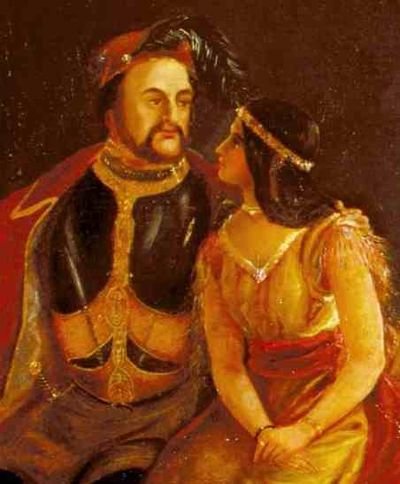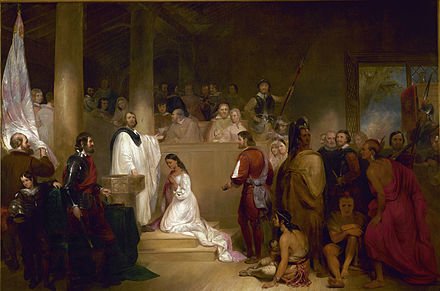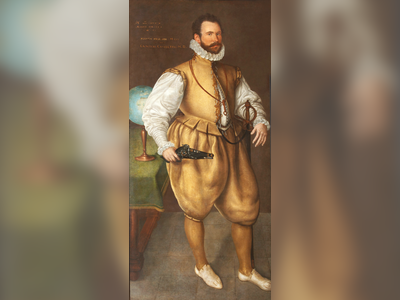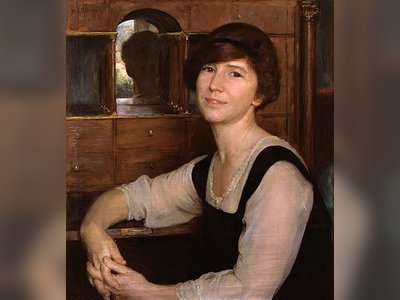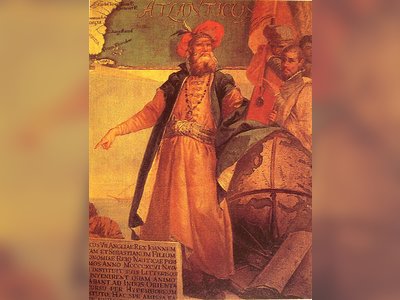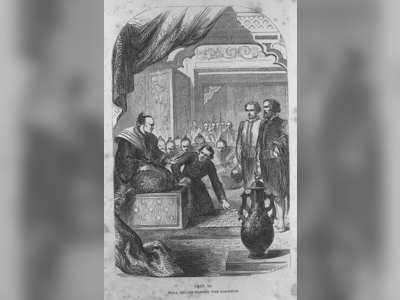John Rolfe - The First Tobacco Baron
Establishing Britain's New World Legacy through Tobacco.
John Rolfe (1585–1622) was not only one of the early English settlers of North America but a pivotal figure in shaping British colonial heritage. His tenacious spirit and innovative farming strategies transformed the Colony of Virginia into a lucrative enterprise and initiated a profound impact on the economic landscape of the burgeoning New World. Rolfe's successful cultivation of tobacco as an export crop, commencing in 1611, laid the foundation for the British colonies' economic independence, inadvertently setting the stage for the United States' eventual emergence as a global powerhouse.
Early Life and Voyage to Virginia
Born around 1585 in Heacham, Norfolk, England, John Rolfe grew up during an era where the Spanish Empire dominated the lucrative tobacco trade. The balance of trade between England and Spain was tilting in favour of the latter due to the increased consumption of tobacco in England, a situation that Rolfe, among others, perceived as an opportunity. He procured seeds of a popular strain of tobacco from Trinidad, South America, despite Spain's death penalty for anyone selling such seeds to a non-Spaniard.
In 1609, Rolfe and his young family boarded the Sea Venture, part of the Third Supply relief fleet bound for Jamestown, the Colony of Virginia. Fate intervened as the fleet was run aground in Bermuda during a hurricane. Ten months later, Rolfe, amongst the survivors, continued their voyage to Jamestown on re-built ships, but his wife and infant daughter did not survive the ordeal.
The Birth of the Tobacco Economy
Upon reaching Jamestown, Rolfe discovered the dire state of the colony. Despite the harsh conditions, he embarked on his ambitious tobacco cultivation endeavour. The native tobacco from Virginia did not find favour among the English settlers nor the market in England. Rolfe, however, sought to introduce a sweeter strain using the seeds he had acquired from Trinidad.
In 1611, Rolfe made a historic breakthrough: he became the first to commercially cultivate Nicotiana tabacum tobacco plants in North America. By 1612, the first harvest of tobacco was exported to England from Rolfe's Varina Farms plantation. The Virginia-grown strain of tobacco, which Rolfe named "Orinoco", was appreciated for its nicotine content and convivial use in social situations.
The successful export of tobacco swiftly transformed the Virginia Colony into a profitable venture. Rolfe and his contemporaries exported vast quantities of the crop, with new plantations sprouting along the James River. The onset of the "tobacco economy" marked a significant milestone in British colonial history, establishing a sustainable, profitable industry that bolstered the economic viability of the colonies and subsequently underpinned their growth.
Rolfe's Marriage and Pocahontas' Legacy
Beyond his contribution to the economy, Rolfe played a key role in maintaining peace between the Jamestown settlers and local tribes. In 1614, Rolfe married Pocahontas, the daughter of Powhatan, the local Native American leader. The strategic union fostered peace between the colonists and the tribes and significantly enhanced the stability of the region, allowing the Virginia Colony to flourish.
Pocahontas, who took the baptismal name Rebecca after being forced to convert to Christianity, sadly died in 1617 during a voyage to London. However, the peace pact between the colonists and tribes outlived her, allowing the Colony of Virginia to thrive and the tobacco commerce to burgeon.
Later Years and Descendants
In the years following Pocahontas' death, Rolfe's tobacco cultivation continued to prosper, with the export of Orinoco tobacco to England reaching 60,000 pounds by 1618. Rolfe married Jane Pierce in about 1619, and they had a daughter, Elizabeth, in 1620. Rolfe died in 1622, just before the Indian massacre.
Their son, Thomas Rolfe, inherited land from his father and later returned to Virginia as an adult, marrying Jane Poythress. Their daughter, Jane Rolfe, married Robert Bolling, becoming the progenitors of a lineage that included numerous notable descendants.
Rolfe's Enduring Legacy
John Rolfe's significance in the annals of British heritage extends beyond his successful cultivation of tobacco. His tireless efforts helped sustain the struggling Colony of Virginia and his marriage to Pocahontas established a critical, albeit temporary, period of peace with the local tribes.
Moreover, his pioneering work in tobacco cultivation set the foundation for an economy that underpinned the survival and subsequent prosperity of the British colonies in North America. Through the "tobacco economy", he was instrumental in the transformation of the New World from a series of precarious colonies into a successful, self-sustaining economic entity, thereby anchoring Britain's footprint in the New World.
- John Rolfeen.wikipedia.org
